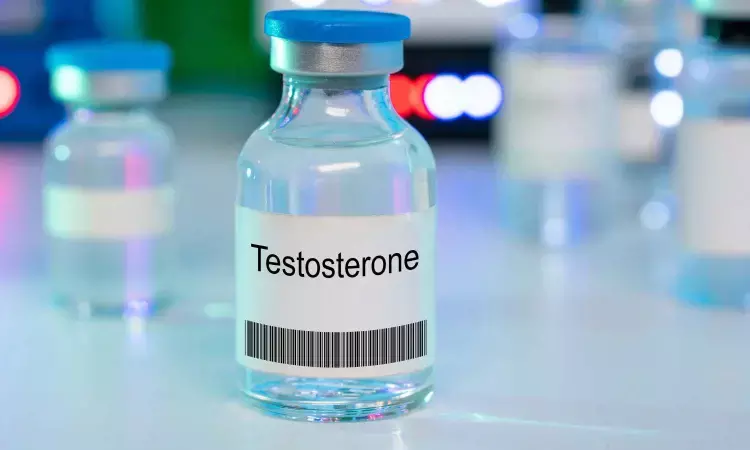- Home
- Medical news & Guidelines
- Anesthesiology
- Cardiology and CTVS
- Critical Care
- Dentistry
- Dermatology
- Diabetes and Endocrinology
- ENT
- Gastroenterology
- Medicine
- Nephrology
- Neurology
- Obstretics-Gynaecology
- Oncology
- Ophthalmology
- Orthopaedics
- Pediatrics-Neonatology
- Psychiatry
- Pulmonology
- Radiology
- Surgery
- Urology
- Laboratory Medicine
- Diet
- Nursing
- Paramedical
- Physiotherapy
- Health news
- Fact Check
- Bone Health Fact Check
- Brain Health Fact Check
- Cancer Related Fact Check
- Child Care Fact Check
- Dental and oral health fact check
- Diabetes and metabolic health fact check
- Diet and Nutrition Fact Check
- Eye and ENT Care Fact Check
- Fitness fact check
- Gut health fact check
- Heart health fact check
- Kidney health fact check
- Medical education fact check
- Men's health fact check
- Respiratory fact check
- Skin and hair care fact check
- Vaccine and Immunization fact check
- Women's health fact check
- AYUSH
- State News
- Andaman and Nicobar Islands
- Andhra Pradesh
- Arunachal Pradesh
- Assam
- Bihar
- Chandigarh
- Chattisgarh
- Dadra and Nagar Haveli
- Daman and Diu
- Delhi
- Goa
- Gujarat
- Haryana
- Himachal Pradesh
- Jammu & Kashmir
- Jharkhand
- Karnataka
- Kerala
- Ladakh
- Lakshadweep
- Madhya Pradesh
- Maharashtra
- Manipur
- Meghalaya
- Mizoram
- Nagaland
- Odisha
- Puducherry
- Punjab
- Rajasthan
- Sikkim
- Tamil Nadu
- Telangana
- Tripura
- Uttar Pradesh
- Uttrakhand
- West Bengal
- Medical Education
- Industry
Testosterone Therapy in Men with Hypogonadism Does Not Reduce Fracture Risk

A recent study published in the The New England Journal of Medicine suggests that testosterone treatment did not lower the risk of fracture risk in middle-aged and older men with hypogonadism. This double-blind, randomized, placebo-controlled trial spanned over a median follow-up of 3.19 years and involved a total of 5204 participants who were aged 45 to 80 with cardiovascular disease risk and symptoms of hypogonadism. The participants were assigned randomly to either a testosterone or placebo gel, applied daily. This research team monitored fracture occurrences through regular inquiries and verified incidents by obtaining and adjudicating medical records.
This study found that testosterone treatment did not lower the incidence of clinical fractures when compared to the placebo. The full-analysis population revealed that after the 3.19-year period, clinical fractures occurred in 3.50% of the testosterone group (91 participants) and 2.46% of the placebo group (64 participants). The hazard ratio was 1.43 (95% confidence interval, 1.04 to 1.97) that suggests a higher fracture risk in the testosterone group. The findings of this research challenge the previous assumptions about the benefits of testosterone treatment in men with hypogonadism. While testosterone improved the bone density and quality, it did not translate into a reduced risk of fractures.
In summary, this study emphasize the importance of more extensive trials with larger sample sizes and longer durations to comprehensively understand the effects of testosterone on fracture incidence. The outcomes boost hope towards future investigations that highlight the complex relationship between testosterone treatment, bone health, and the overall well-being in middle-aged and older men with hypogonadism.
Reference:
Snyder, P. J., Bauer, D. C., Ellenberg, S. S., Cauley, J. A., Buhr, K. A., Bhasin, S., Miller, M. G., Khan, N. S., Li, X., & Nissen, S. E. (2024). Testosterone treatment and fractures in men with hypogonadism. The New England Journal of Medicine, 390(3), 203–211. https://doi.org/10.1056/nejmoa2308836
Neuroscience Masters graduate
Jacinthlyn Sylvia, a Neuroscience Master's graduate from Chennai has worked extensively in deciphering the neurobiology of cognition and motor control in aging. She also has spread-out exposure to Neurosurgery from her Bachelor’s. She is currently involved in active Neuro-Oncology research. She is an upcoming neuroscientist with a fiery passion for writing. Her news cover at Medical Dialogues feature recent discoveries and updates from the healthcare and biomedical research fields. She can be reached at editorial@medicaldialogues.in
Dr Kamal Kant Kohli-MBBS, DTCD- a chest specialist with more than 30 years of practice and a flair for writing clinical articles, Dr Kamal Kant Kohli joined Medical Dialogues as a Chief Editor of Medical News. Besides writing articles, as an editor, he proofreads and verifies all the medical content published on Medical Dialogues including those coming from journals, studies,medical conferences,guidelines etc. Email: drkohli@medicaldialogues.in. Contact no. 011-43720751


